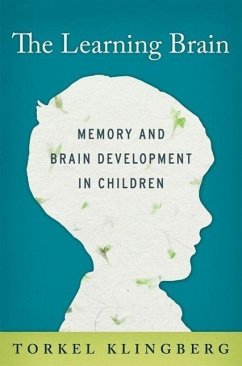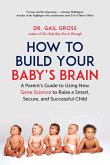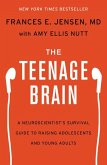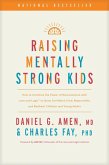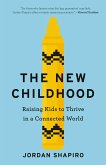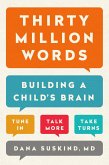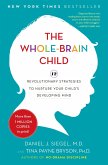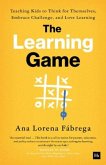Despite all our highly publicized efforts to improve our schools, the United States is still falling behind. We recently ranked 15th in the world in reading, math, and science. Clearly, more needs to be done. In The Learning Brain, Torkel Klingberg urges us to use the insights of neuroscience to improve the education of our children. The key to improving education lies in understanding how the brain works: that is where learning takes place, after all. The book focuses in particular on "working memory"--our ability to concentrate and to keep relevant information in our head while ignoring distractions (a topic the author covered in The Overflowing Brain). Research shows enormous variation in working memory among children, with some ten-year-olds performing at the level of a fourteen-year old, others at that of a six-year old. More important, children with high working memory have better math and reading skills, while children with poor working memory consistently underperform. Interestingly, teachers tend to perceive children with poor working memory as dreamy or unfocused, not recognizing that these children have a memory problem. But what can we do for these children? For one, we can train working memory. TheLearning Brain provides a variety of different techniques and scientific insights that may just teach us how to improve our children's working memory. Klingberg also discusses how stress can impair working memory (skydivers tested just before a jump showed a 30% drop in working memory) and how aerobic exercise can actually modify the brain's nerve cells and improve classroom performance. Torkel Klingberg is one of the world's leading cognitive neuroscientists, but in this book he wears his erudition lightly, writing with simplicity and good humor as he shows us how to give our children the best chance to learn and grow.
All learning takes place in the brain, and the key to a child's development is how its brain matures. But how can we take the step from knowledge of neurons to education? What is the cause of inattention, dyslexia, or dyscalculia? How does brain maturation affect teenage behavior? These are all important questions to ask as many statistics suggest that levels of knowledge in children have stagnated and in some cases receded. Drawing fom his and others research, and, in certain cases, stories and examples, Torkel Klingberg, a leading cognitive neuroscientist, shows how the brain is affected by genes, stress, physical exercise and parental relationships. The result of his research, The Learning Brain, demonstrates how we can give our children and teenagers the best opportunities to learn and develop.
Hinweis: Dieser Artikel kann nur an eine deutsche Lieferadresse ausgeliefert werden.
All learning takes place in the brain, and the key to a child's development is how its brain matures. But how can we take the step from knowledge of neurons to education? What is the cause of inattention, dyslexia, or dyscalculia? How does brain maturation affect teenage behavior? These are all important questions to ask as many statistics suggest that levels of knowledge in children have stagnated and in some cases receded. Drawing fom his and others research, and, in certain cases, stories and examples, Torkel Klingberg, a leading cognitive neuroscientist, shows how the brain is affected by genes, stress, physical exercise and parental relationships. The result of his research, The Learning Brain, demonstrates how we can give our children and teenagers the best opportunities to learn and develop.
Hinweis: Dieser Artikel kann nur an eine deutsche Lieferadresse ausgeliefert werden.

